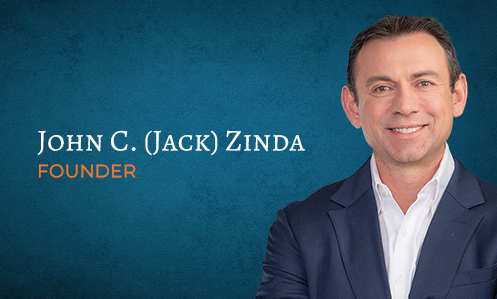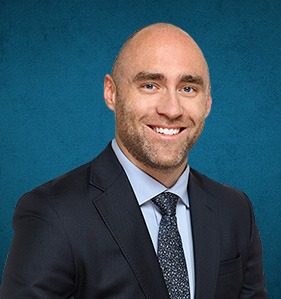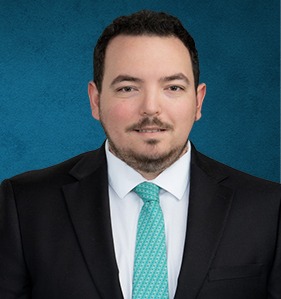CALL (800) 863-5312 TO SPEAK WITH A SANTA FE BRAIN INJURY AND HEAD TRAUMA ATTORNEY FOR FREE
Head trauma survivors and their family members often deal with the effects and costs of the injury long after the accident. Unfortunately, many serious cases of traumatic brain injury result in extended hospital stays, extensive therapy regimes, and life-long impairments. The costs of treating and maintaining the health of someone with a severe TBI can accumulate to multiple millions of dollars over their lifetime. Depending on how your accident or the accident of a loved one occurred, you may be entitled to compensation. For this reason, you should not hesitate to contact an experienced personal injury attorney to evaluate your ability to seek compensation.
At Zinda Law Group, our attorneys have the knowledge and skills necessary to help you maximize your compensation. Our firm has handled numerous brain injury and head trauma cases and helped our clients seek maximum compensation for their injuries. Call Zinda Law Group at (800) 863-5312 for a 100% free case evaluation with our experienced Santa Fe brain injury lawyers today.
Knowing the Signs and Symptoms of Brain Injuries
A traumatic brain injury (TBI) usually results from a sudden and violent jolt or blow to the head or body of an accident victim. Although head trauma is relatively common, there can be serious side effects if they are left untreated. Traumatic brain injuries can vary in severity from minor concussions to severe and fatal head injuries. Nevertheless, even a mild brain injury or concussion has the potential to severely impair a person’s cognitive abilities, memory, and/or motor skills.
Signs of head trauma and brain injuries can last for hours or even days or weeks after the accident. However, the usual indicators of a traumatic brain injury are generally noticeable in four principal areas:
Physical Signs
- Loss of Consciousness
- Nausea
- Vomiting
- Dizziness
- Sensitivity to light and sound
- Headaches
- Exhaustion or Fatigue
- Weakness or Numbness
Emotional Signs
- Intensification of emotions
- Heightened anxiety
- Increased tension
- Onset of depression
Memory & Cognition Signs
- Having trouble thinking clearly
- Difficulty remembering new information
- Trouble concentrating on tasks
- Difficulty following the course of a conversation
- Some people say they feel like they are in slow motion
Sleep Signs
- Can be excessive sleep
- Disturbances or difficulty in falling/remaining asleep
Signs and Symptoms of Brain Injuries in Infants and Young Children
When a young child or infant experiences a brain injury, they often will not have the capacity or language to communicate their symptoms. Even though it may be easy for an adult or teenager to articulate if they are experiencing headaches, sensory problems, or general confusion; diagnosing brain injuries in infants and young children can be challenging.
The Mayo Clinic states that parents should be vigilant and seek out medical attention if they notice their child is experiencing any of the following:
- Changes in eating or nursing behavior
- Unusual or easy irritability
- Persistent crying with inability to be consoled
- Changes in attention span
- Disturbances in sleep pattern
- Seizures
- Depression
- Drowsiness or fatigue
- Sudden loss of interest in their favorite toys or activities
How to Know Whether It’s a Mild, Moderate, Or Severe Brain Injury
The terms “mild,” “moderate” and “severe” are used to describe the effect of the injury on the brain’s functioning. Whether it’s mild or severe depends in part on:
- How long the person was unconscious
- How intense their symptoms are
- The damage and inflammation of the brain
Regardless of the injury’s perceived intensity, even a mild injury to the brain is still a serious ailment that requires prompt attention and an accurate diagnosis.
Though the term “concussion” is sometimes used lightly, it is actually a very severe injury. Downplaying the severity of even minor head traumas can have serious repercussions, particularly if the injured individual is likely to receive another head injury in close succession to the last. Second impact syndrome (SIS), or repetitive head injury syndrome, describes a condition in which an individual experiences a second head injury before completely recovering from an initial head injury. SIS occurs when the brain swells rapidly, and catastrophically, after a person suffers a second concussion before symptoms from an earlier concussion have subsided. The second injuring-event could happen hours, days, or even weeks after the initial concussion. The effects of SIS are more prevalent in younger individuals and are often fatal. Therefore, every head injury should be treated with extreme caution.
Incapacitation and Guardianship/Conservatorship Under New Mexico Law
When someone experiences a moderate to severe brain injury, they can be rendered incapacitated or incapable of managing the important decisions relating to his or her personal care. They may also need someone to file a lawsuit on their behalf for their injuries. In these situations, finding someone to make these decisions on their behalf becomes of paramount importance.
What is Incapacity?
Under New Mexico law, an “incapacitated person” is defined as a “person who demonstrates over time either partial or complete functional impairment by reason of mental illness, mental deficiency, physical illness or disability, chronic use of drugs, chronic intoxication or other cause, except minority, to the extent that the person is unable to manage the person’s personal affairs or the person is unable to manage the person’s estate or financial affairs or both.” In the case of a traumatic brain injury, the injured individual is generally considered to be either physically disabled or mentally deficient.
If the incapacitated individual is a child, the court will defer to the parents, as they are the child’s default legal guardians. Additionally, if the incapacitated individual has executed a well-crafted will or living will, it should contain provisions appointing someone with the “power of attorney,” thereby avoiding any intervention from the court. A power of attorney refers to a document in which the person signing the document (the principal) authorizes another person (an agent) to make health care decisions on their behalf, in the event of incapacitation.
However, if the individual is an adult and has become incapacitated without executing a living will, the court can create a conservatorship or guardianship for them. New Mexico courts will only do so when it is the least restrictive alternative.
What is a Guardian?
A guardian is a person, or an entity, appointed by a court to make personal and health care decisions for someone who is impaired due to mental illness, dementia, physical or mental disability, or substance abuse. Guardians have the same powers and duties as a parent has to a minor child, except that there is no obligation to provide for the incapacitated party from their own funds.
What is a Conservator?
A conservator, on the other hand, is a person or entity appointed by a court solely to make financial decisions on behalf of an incapacitated person. Conservators act as fiduciaries with the standards of care of a trustee. Either of these decision-making court appointments can be of limited duration or span the course of the incapacitated person’s lifetime.
Taking on the responsibility of a guardianship or conservatorship should not be done lightly. Serving as either a guardian or conservator for another person requires a large amount of time, patience, sensitivity, and care. Additionally, a guardian or conservator cannot quit whenever they like. A judge must replace the guardian/conservator or determine a guardian/conservator is no longer needed due to the protected person regaining capacity or due to the death of the protected person.
What Legal Recourse Do You Have For A Brain Injury?
Brain injuries can occur in many ways, including blunt-force trauma, whiplash, electrocution, or oxygen deprivation. Like many other injuries, head trauma can be the result of one’s own carelessness or the conduct of another party. It is when another person’s negligence or intentional conduct causes your injury that you can action to seek legal compensation. Brain injury claims can take the form of medical malpractice, personal injury, product liability, or premises liability.
The most common circumstances that cause brain injuries and head trauma include:
- Traffic accidents
- Contact sports (including but not limited to football, hockey, baseball, and rugby)
- Dangerous or defective products
- Unsafe premises (such as outdated playgrounds, unfenced pools, or poorly maintained property)
- Explosions
- Military combat
- Automobile defects
- Bicycle or motorcycle accidents (often without a helmet or protective gear)
- Medical malpractice
- Workplace machinery
- Slip-and-falls or falls from heights
- Electrical accidents
- Physical assaults
GET HELP FROM OUR SANTA FE HEAD TRAUMA ATTORNEYS TODAY
At Zinda Law Group, our Santa Fe attorneys have helped brain injury survivors and their loved ones get their lives back on after a catastrophic accident, death, and financial losses. We have the knowledge and resources necessary to help you seek maximum compensation for any associated medical bills, lost income, property damage, pain and suffering, and all the other costs caused by your accident.
Our firm believes that injured clients should not have to worry about their ability to afford high-quality legal representation. This is why we offer 100% free consultations. Zinda Law Group operates on a contingency fee basis, meaning you will pay nothing unless we win your case. That’s our No Win, No Fee Guarantee.
If you or a loved one has suffered a brain injury, call Zinda Law Group at (800) 863-5312 to receive your free consultation with our Sante Fe office attorneys today. We are also offering free virtual consultations during the COVID-19 crisis.
Meetings with attorneys are available by appointment only.

John (Jack) Zinda
Founder / CEO
Over 100 years of combined experience representing injured victims across the country.
Available 24 / 7|Free Consultation
Neil Solomon
Partner
Real results matter. We do not get paid unless we win your case.
Available 24 / 7|Free Consultation


























